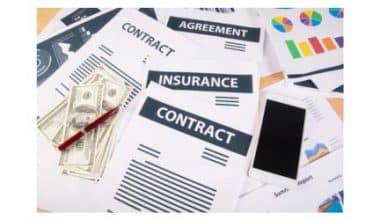Insurance for caterers is a safety net of coverages designed to protect you from the costs of expensive claims. Covered claims included in your catering insurance policy can look like an injury, food poisoning, equipment loss, and property damage.
Before taking on any catering event, it’s imperative to have adequate catering insurance coverage. Your catering insurance quote can include:
- Product Liability Insurance
- Tools & Equipment Insurance (Optional)
- General Liability Insurance and more
The Food Liability Insurance Program (FLIP) also provides extra policy options – a trailer endorsement and increased limits – if your catering business needs more protection.
What are the three types of caterers?
Every catering business operates a little differently, which means each one will have unique insurance needs. Broadly speaking, most catering companies will be filed in one of three categories:
- On-premise caterers: These caterers host the events they’re catering at a specific location, usually a hotel, convention center, or restaurant.
- Off-premise caterers: These caterers come to their clients. Usually, the food is cooked off-site and then trucked to wherever the event is happening.
- Mobile caterers: These caterers go to their clients and cook the food on-site, usually in their own food trucks.
When you get new clients interested in catering insurance, understanding what kind of catering business they run should be your first step. Once you know how their business runs, outline which kinds of insurance coverage they need. For instance, commercial auto insurance is crucial for mobile and off-premises caterers but likely will not be necessary for on-premise caterers.
Why do caterers need insurance?
If you serve food or drink at events, you should protect your business with a catering insurance policy. During the preparation for any event, there is so much to plan for (and, for catering staff, so many meals to coordinate). However, it’s important to plan for the unexpected as well.
Out of the hundreds (or even thousands) of people you serve, one small liability claim from a guest can cost tens of thousands of dollars, totally disrupting your business’s financial security. This insurance package is recommended for catering businesses of varying sizes and can be tailored to suit your needs, including:
- Social event caterers
- Wedding caterers
- Corporate event caterers
- Concession caterers
- Mobile catering businesses
Food and beverage industry insurance requirements vary by state law and the requirements of the venue or event planner. Insurance for caterers may be necessary to:
- Get new clients. Many event planners and venues require general liability or workers’ compensation before they’ll work with you.
- Hire employees. Many states require workers’ compensation insurance if you have employees.
- Deliver, pick-up or drive for business. Business-owned vehicles typically need commercial auto insurance.
- Repair or replace property you own or rent. Protect your inventory, equipment and the space where you work with a BOP (business owner’s policy).
What does caterers’ insurance cover?
Catering insurance offers comprehensive coverage for the general and specific risks that catering businesses may face. You can expect catering insurance to include the following coverages:
Commercial General Liability (CGL) Insurance
CGL insurance protects you from many general, day-to-day risks faced when running a business. If a third party is injured or their property is damaged due to your business’s actions, you can be held liable, and CGL may offer protection.
For example, if an employee hands a customer a hot plate and burns their hand, you could be liable for their injury. In this case, a CGL policy could cover the cost of their medical bills.
- Product Liability Insurance: As part of a CGL policy, you can also be covered for product-related risks. This coverage protects you against claims of property damage or bodily injury caused by your products, such as the food or drinks you serve. For instance, say a customer has an allergic reaction to a dessert you serve and alleges there must have been cross-contamination. Product liability insurance would cover their medical costs and your legal defense fees.
Be advised that product liability insurance may not cover claims related to alcohol that you serve at an event. If you serve alcohol, you may need liquor liability insurance also.
Business Owner’s Policy (BOP)
A business owner’s policy includes liability coverage from commercial general liability and business property insurance to help protect your catering business. Business Owners Policy can help you pay for:
- Guest or client injuries (a.k.a bodily injury)
- Property damage
- Food contamination or spoilage Business income interruption
- Equipment breakdown coverage
Workers’ Compensation
Workers’ compensation insurance can help pay for medical expenses and lost wages after a workplace injury at a catering job or in your kitchen. It can help you pay for:
- Medical expenses
- Lost wages
- Employer liability
Commercial Auto Insurance
Commercial vehicles are a must for any caterers who need to move food and equipment from their kitchen to the venue. It covers the caterer if those vehicles are damaged, broken into, cause harm to others, or are involved in a crash.
They also protect owners from the costs of liability suits arising from a crash with the vehicle.
Contents Insurance
Contents insurance protects business assets from insured risks resulting in damage or destruction. Examples of insured risks include fire, theft, and vandalism. For example, say you’re catering at a wedding, and a fire breaks out in the banquet hall due to an electrical fault.
Contents insurance could cover damage to your catering property that was damaged (and any spoiled food) due to the fire.
Property Insurance
Property insurance coverage protects your clients in case of theft or damage to catering property. Theft is common in restaurants and catering companies, so having good property insurance is imperative when expensive equipment goes missing at night.
However, not all property insurance policies cover off-premises equipment, so make sure off-premises caterers are covered properly.
Liquor Liability insurance
Alcohol is a big moneymaker for any caterer, but it also comes with legal risks. Many caterers may not realize that serving alcohol opens them to a world of new and potentially financially devastating lawsuits. That’s why, if they serve alcohol at all, they need to have a good liquor liability policy. These policies will cover the legal costs and penalties if an injury or accident happens due to someone being overserved alcohol at an event.
Liquor Liability can help you pay for:
- Injuries
- Property damage
- Legal fees and medical payments
Business Interruption Insurance
This coverage provides financial reimbursement for lost income after an insured event. For example, say the fire in the previous example caused damage to a significant portion of your catering equipment, meaning you were unable to work at subsequent events due to a lack of equipment.
Business interruption insurance could cover the cost estimated in lost revenue.
Note that business interruption coverage doesn’t provide coverage for income that’s lost due to a pandemic, infectious disease, or government-mandated closures.
Cyber Liability Insurance
Most caterers would assume that they don’t need cyber insurance. However, in most cases, they’d be wrong. Any businesses with private customer data like phone numbers, names, or credit cards need cyber liability insurance to protect them. If that data were stolen, they could be sued, and without cyber insurance, they’d be on the hook for these costs.
Cyber insurance also helps pay for losses caused by cyber-attacks and helps them minimize any losses after a security breach.
Employment Practices Liability Insurance (EPLI)
Even if you treat your employees like family, you can’t discount the chance that employees might interpret your actions negatively and sue.
EPLI is there to protect caterers from the cost of lawsuits that come from employees. If employees feel their rights have been violated, they may sue the caterer. EPLI helps cover costs related to the court battle and any damages awarded by the court if they are found liable.
Without this coverage, catering businesses would be vulnerable to these kinds of suits, which isn’t fair to the owners or the employees who rely on them to make a living.
Equipment Breakdown Insurance
Equipment breakdown insurance provides coverage to repair or replace professional equipment that’s broken down or damaged due to mechanical failure or an electrical issue. You can also be covered for lost revenue and food spoilage that’s directly related to the claim.
Suppose you’re catering at an event, and your warming oven breaks down, meaning hot food cannot be served. Equipment breakdown insurance can cover the costs to repair the oven, and cover the estimated lost income and food spoilage costs.
Legal Expense Insurance
Legal expense insurance covers the costs of hiring a lawyer where coverage isn’t provided under another policy (e.g. property protection, tax protection, or employee bodily injury). It provides your business with legal advice from a professional lawyer and the financial coverage to retain legal services when needed.
How much does caterers insurance cost?
Catering businesses come in all shapes and sizes, so there’s no fixed cost. For a starting point, a small- to medium-sized catering business can anticipate a starting cost of approximately $800 per year for commercial general liability insurance with a policy limit of $2 million.
You can include additional coverage options and increased coverage limits in your catering liability insurance policy at extra cost. Protect your business your way and never pay for more than you need.
To calculate a quote, an insurance company will take into consideration the components that make your business unique.
Here are some of the main factors you can expect to be asked about when making a quote:
- Years of experience
- Types of services
- Locations served
- Annual and projected gross revenue
- Number of employees
What you should consider before buying caterers business insurance
Due to the crucial role that insurance plays in protecting businesses, industry experts advise companies to shop around and compare options from multiple providers to make sure that they get the protection they need at the best possible price.
Here are the key criteria that caterers should consider when choosing the right policies:
- Premiums and deductibles: Experts warn small businesses against choosing the cheapest available policy, which could cost them tens to hundreds of thousands – potentially even millions in the long run. Caterers should look for policies with premiums and deductibles that offer the best value for the amount of coverage and the relative level of risk facing their businesses.
- Coverage options: Many policies look similar across insurers in terms of which perils will or will not be covered. Caterers should ask their insurance providers about adding or extending coverages to suit their business needs.
- Company reputation: Caterers should look for insurance providers with a good track record for customer satisfaction and fair business practices.
- Policy limits: Caterers should make sure that the limit of each insurance policy can cover the full value of the protection they require.
- Claims reporting: Caterers should also make sure that they can navigate the claims process easily to minimize financial losses and disruptions to their operations. The process is often laid out in the product disclosure statement of the policy.
- Financial stability: Policyholders should make sure that their insurer is in good shape financially to cover claims that may arise.
Recommended Articles
- How to Get Small Business Insurance: Complete Guide
- Business Insurance For LLC: What It Is & Best Options
- Business Insurance for Consultants: What It Is & How Much It Costs
- Business Insurance Quotes: Getting Insurance Quote Online
- Cleaning Business Insurance and Bonding: Finest Options
- Accountant Professional Liability Insurance: Coverage, Cost & More






